Professor, Dr. Hoang Van Cuong:

"STATE ECONOMIC GROUP IS A STRATEGIC PILLAR AND MOTOR FOR NATIONAL ECONOMIC DEVELOPMENT"
Nhan Dan Newspaper reporter had an interview with Professor, Dr. Hoang Van Cuong, National Assembly Delegate of Hanoi City, Member of the National Assembly's Economic and Financial Committee about this issue.
THE JOURNEY TO PLAY A CORE ROLE IN THE COUNTRY'S ECONOMY
Reporter: Since 1994, the state economic group was formed. Could you tell us about the mark of the state economic group in more than 31 years of development?
Professor, Dr. Hoang Van Cuong: In 1994, according to Decision No. 91-TTg of the Prime Minister "On piloting the establishment of business groups", state economic groups were formed with the goal of "Improving the efficiency of the economy". Up to now, after more than 30 years of operation, state-owned enterprises, led by corporations and general companies, have promoted the spirit of initiative, creativity, daring to think, daring to do, taking the lead in taking on new tasks for the benefit of the nation and people.
According to the latest figures, Vietnam currently has 671 state-owned enterprises, including 6 economic groups and 53 corporations. Currently, state-owned economic groups are holding important positions in key sectors of the national economy. They not only play the role of domestic pillars, but also gradually reach out to the international market, affirming the competitiveness of the Vietnamese economy globally.
A typical example is the telecommunications sector. Vietnam's telecommunications technology has been developing strongly, not only in terms of coverage speed and high internet access rate, but also in the ability to provide services to many other countries. Some corporations have become international brands, contributing to promoting the image of Vietnam to the world .
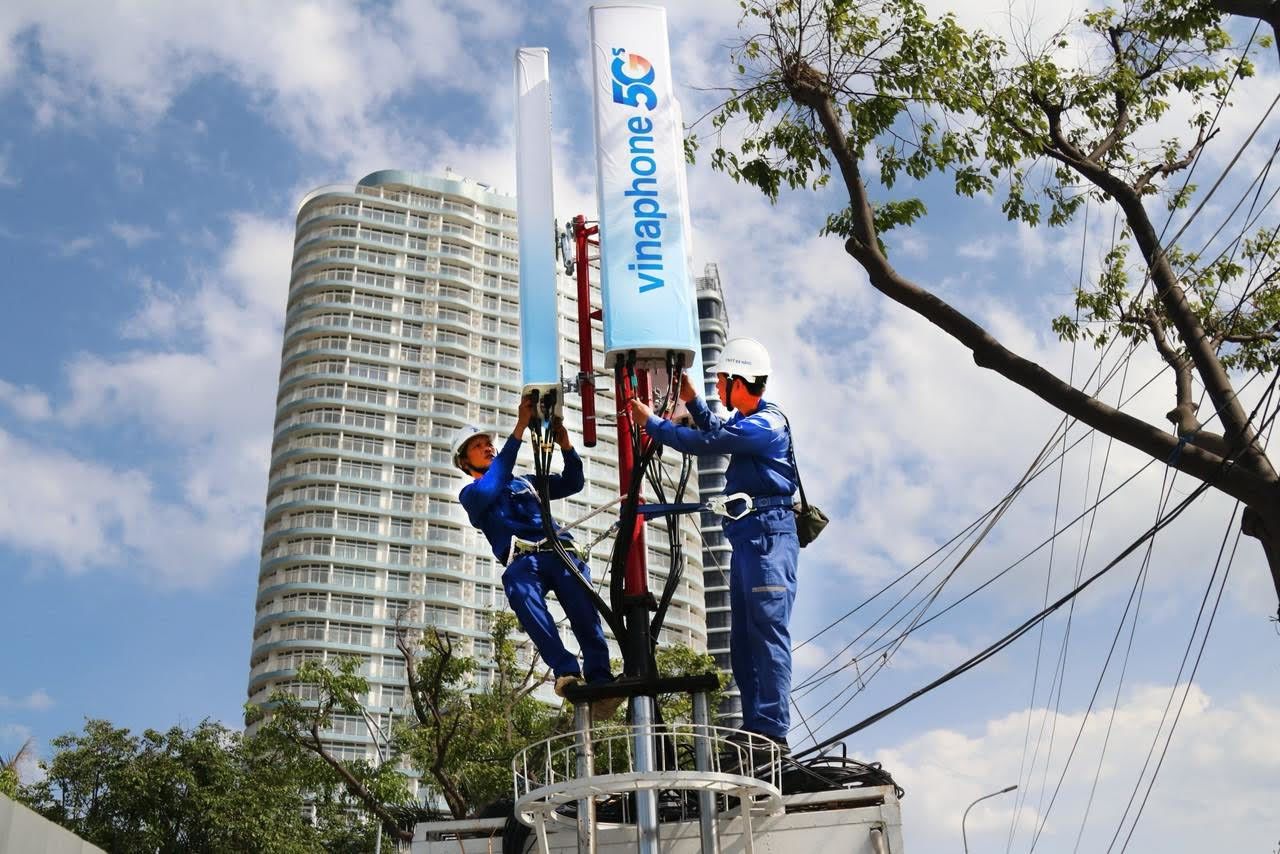
Telecommunications technology in Vietnam is developing strongly. (Photo: THANH DAT)
However, after more than 30 years of development, we must frankly admit that the state economic sector in general and corporations in particular have two sides: very clear bright spots, but also many limitations and shortcomings. We expected to have "iron fists" to create a boost for the economy, but in the end, we have not met our expectations. It is the interweaving of past successes and shortcomings that are valuable lessons, the premise for us to learn from experience and establish a new direction for state corporations and groups in the next stage of development.
The way forward requires building a more effective and sustainable development model, thereby promoting the proper role and potential of the state economic sector, especially state-owned corporations and groups, in contributing to the overall development of the country.
Vietnam has 671 state-owned enterprises, including 6 economic groups and 53 corporations. Currently, state-owned economic groups are holding important positions in key sectors of the national economy. They not only play the role of domestic pillars, but also gradually reach out to the international market, affirming the competitiveness of the Vietnamese economy globally.
Reporter: What is the role of state economic groups in the national economy, contributing to economic growth and development, and generating revenue for the state budget, sir?
Professor, Dr. Hoang Van Cuong: The 13th National Party Congress affirmed: "Developing strong Vietnamese enterprises to become the backbone of the country's economy; maintaining major balances, focusing on ensuring economic security; constantly strengthening the national economic potential".
Over the years, state economic groups have developed and played a core, leading role in leading many sectors of the economy.
In important areas of the economy, state-owned corporations and groups are holding key positions, acting as the “pillars” and “backbone” of the Vietnamese economy. In many important sectors and areas, these corporations not only lead the development direction but are also the force ensuring the stability and sustainability of the entire socio-economic system.
The 13th Party Congress affirmed: "Developing strong Vietnamese enterprises to become the backbone of the country's economy; maintaining major balances, focusing on ensuring economic security; constantly strengthening the national economic potential".
Behind the daily changes in the national transport infrastructure system, there is always the contribution of state-owned enterprises in the construction and development of key infrastructure projects, the lifeblood for economic and social development to rebuild and serve the country's development. Many key investment projects with connectivity, spillover, and motivation have been strongly implemented.
To operate monetary policy, stabilize exchange rates and control inflation, and provide credit capital to meet the needs of the economy, the system of State-owned commercial banks is a strong arm in implementing the State's management policies.

Modern generators of Vietnam Electricity Group. Photo: EVN
In the energy sector, including electricity, oil and gas, Vietnam Electricity Group, the National Oil and Gas Group, now the Vietnam National Energy-Industry Group, etc. have been playing a role in ensuring energy security and providing stable supply for the country’s production and daily life. This is especially important in the context of fluctuations in the global energy market and increasingly high domestic demand.
In short, state economic groups are not only pure production and business units, but also pillars protecting and leading the national economy to develop in the right socialist direction, bringing stable, long-term and sustainable values to the country.
State economic groups are not only pure production and business units, but also pillars protecting and leading the national economy to develop in the right socialist direction, bringing stable, long-term and sustainable values to the country.
According to the Ministry of Finance, the investment capital in 2022 of 19 groups and corporations under the State Capital Management Committee (transferred to the Ministry of Finance in early 2025) reached about 156 trillion VND. Of which, the energy sector (electricity, coal) accounted for 80.47%, construction of transport infrastructure accounted for 10.61%; telecommunications and information technology accounted for 7.88%.
In 2022, corporations and general companies provided for production and consumption 242.7 billion kWh of electricity, 10.84 million tons of crude oil, 8.08 billion m3 of gas, 42.2 million tons of clean coal, 13.76 million m3 of gasoline, 5.78 million tons of aluminum, 30 thousand tons of copper plates, 4.8 million tons of fertilizer, 842 thousand tons of basic chemicals, 2.3 million kWh of batteries, 280 thousand tons of detergents, 3.7 million car tires, transported 124.7 million passengers and 131 million tons of goods.
Reporter: As mentioned above, in addition to the task of economic development, state economic groups also ensure national defense security, energy security, and food security. Could you elaborate on this political task, Professor?
Professor, Dr. Hoang Van Cuong: In the context of Vietnam being an open economy, attracting a lot of FDI capital and having deep participation in global trade, there are still vital areas where the country cannot depend on foreign countries. These are defense, telecommunications security, energy, oil and gas, electricity, or food security. Lessons from Europe, especially Germany, show that when geopolitical conflicts break out, if the gas supply is cut off, the socio-economy can fall into immediate crisis.
State economic groups do not exist solely to seek profits or maximize revenues. The important political goal that this economic sector has achieved over the years is to help the State ensure political stability, social security and economic safety.
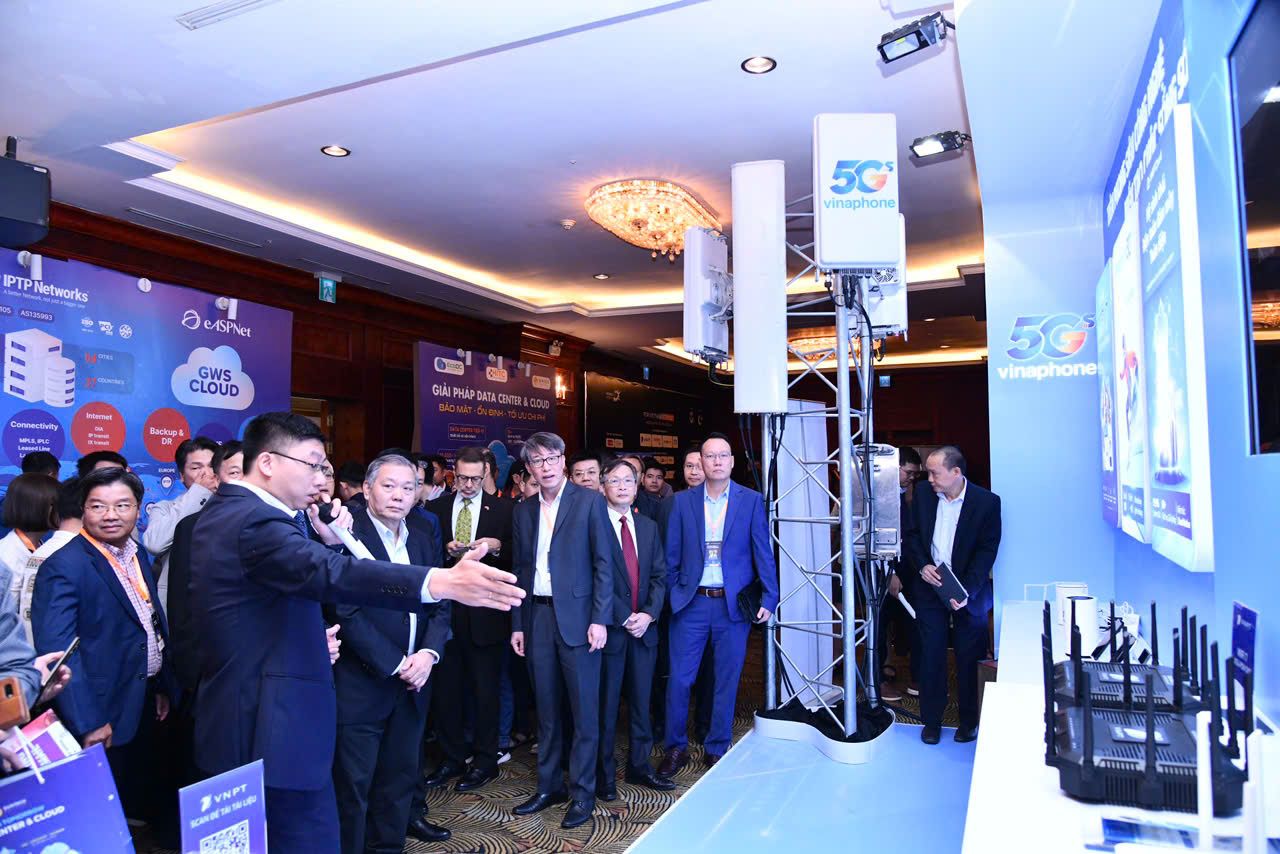
State-owned economic groups are constantly striving to develop. Photo: VNPT
State-owned enterprises, including state-owned economic groups, have assumed the role of “backbone” in these areas. State-owned groups are playing the role of “fuel security guarantee”, “coordinating the national power grid system”, “playing a role in stabilizing food security” and “creating a stable power for the country’s food reserves”.
These are important regulatory tools for the State to carry out its guiding role, intervene in the economy when necessary, protect the country and its people from market fluctuations and natural disasters, and in the context of increasingly complex global fluctuations. That is the strength that ensures Vietnam's independence, economic autonomy and national security.
In particular, state-owned enterprises in the field of national security and defense and enterprises with the task of producing for national security and defense are playing an important foundational role in building a strong, independent, and self-reliant national defense. Many important achievements of enterprises in the field of security and defense are not immediately visible to everyone.
Our country has just escaped the limits of a low-income country, but we have a stable economy, overcoming all the difficulties and unusual fluctuations of the world; have a strong, independent, self-reliant, self-reliant national defense; the national position and prestige we have today must be attributed to the important contributions of state-owned corporations and enterprises.
State-owned corporations are considered to be the ones who "coordinate the national power grid system", "play a role in stabilizing food security" and "create a stable force for national food reserves". This helps to proactively protect the country and its people from market fluctuations and natural disasters. This is the strength that ensures Vietnam's independence, economic autonomy and national security.
RESPONSIBILITY OF "BOTH PRODUCTION AND BUSINESS, AND POLITICAL RESPONSIBILITY"

Reporter: Since their operations, state-owned corporations and groups have always implemented the mechanism of “both production and business and political tasks”. Is performing two major tasks at the same time causing difficulties in operating according to market principles for state-owned corporations? How can we harmonize these two roles, sir?
Professor, Dr. Hoang Van Cuong: It must be affirmed that, during the period of post-war economic reconstruction, construction and development, it was State-owned enterprises, including economic groups, that performed the heavy but especially important and glorious task of contributing to the country's growth, while also helping to ensure the nation's important security and safety.
At present, when the economy and politics have changed a lot, the dual role of corporations and state-owned enterprises also needs to be recognized and re-evaluated.
A prominent reality of state-owned corporations and enterprises is that they always face a “double conflict”. On the one hand, they must carry out political tasks according to the State’s plans and instructions, including tasks that do not bring direct economic efficiency. On the other hand, they still have to exist and compete equally under the market mechanism, where profit and efficiency are the measure of survival.
This is a contradiction between two opposite sides that state-owned enterprises must simultaneously satisfy: production according to orders can go against the logic of market operation, and conversely, following market rules can cause some political goals to not be met.
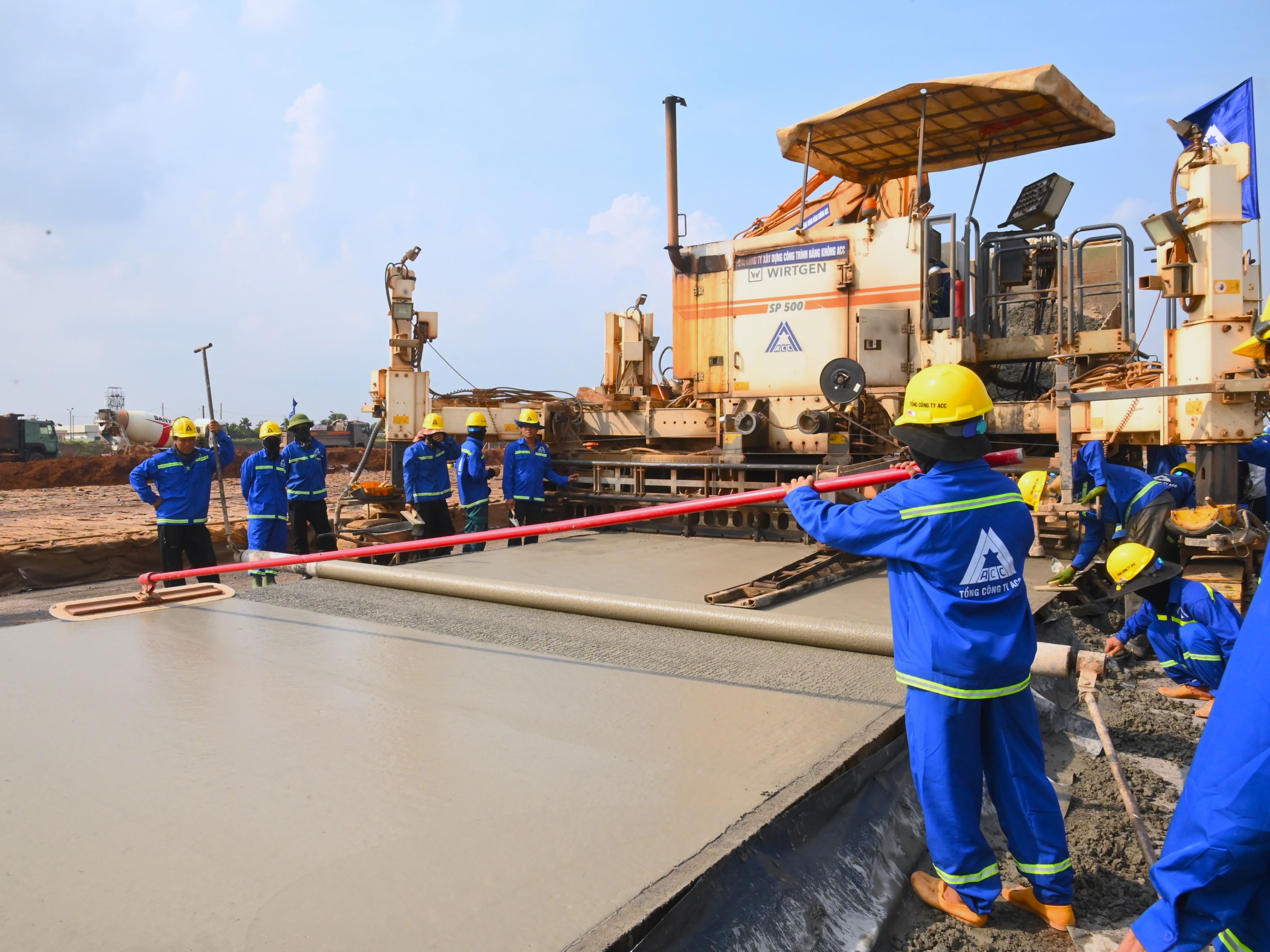
Construction of the national key project Long Thanh Airport. Photo: Vietnam Airlines Corporation
To overcome this, it is necessary to clearly distinguish between two types of tasks. For political tasks, the evaluation criteria cannot be only profit, but also the level of completion of strategic goals. On the contrary, for purely market activities, enterprises need to be given autonomy, freedom to compete and responsibility for economic indicators.
This approach prevents excessive favoritism for state-owned enterprises and the use of “political missions” to justify poor business performance. More importantly, it helps state-owned corporations play their roles in both aspects: as a factor serving the national interest and as a dynamic, creative, and competitive economic entity in the market.

Urgently completing important items of Long Thanh airport. Photo: Vietnam Airlines Corporation
Reporter: In your opinion, are current policies and institutions open enough for state-owned corporations to proactively invest and expand their markets?
Professor, Dr. Hoang Van Cuong: The current economic system is being oriented to create a more open environment for business activities, especially for state-owned economic groups. The principle of “management by output results” instead of “management by process” is considered an important step forward, helping state-owned enterprises have the freedom to invest and do business similar to private enterprises, especially in areas with potential and competitive advantages.
However, this openness does not mean lax management. On the contrary, the market mechanism will become a natural “filter” to select suitable managers, strategies and business models with real competitiveness. Corporations and businesses that operate inefficiently, do not meet market requirements or choose the wrong strategy will be eliminated.
This approach is both a challenge and an opportunity. A challenge because it forces state-owned enterprises to innovate, be more dynamic and efficient. An opportunity because this is a natural selection mechanism, helping to select the strongest corporations, with the most suitable strategies, and with the capacity to meet the requirements of socio-economic development in the new period.
PILLARS OF THE STATE ECONOMY IN THE NEW ERA
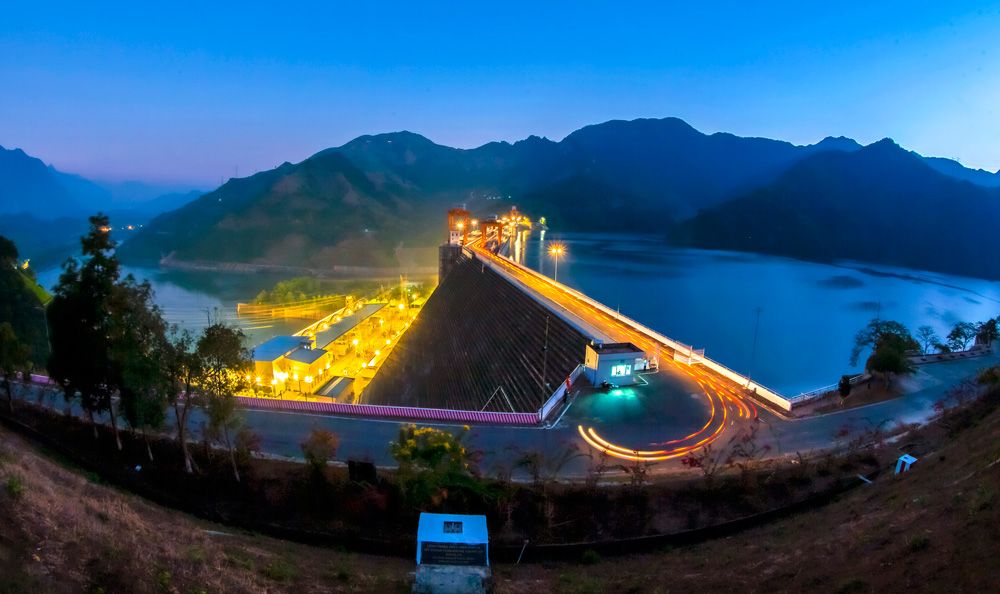
Reporter: Recently, the National Assembly passed the Law on Management and Investment of State Capital in Enterprises (Law No. 68/2025/QH15, abbreviated as Law No. 68). Law No. 68 takes effect from August 1, 2025; it is considered an important milestone in the management of State capital in enterprises, and also resolves the problems just discussed. Could you elaborate on how the implementation of Law 68 will untie and open up new mechanisms for State-owned enterprises, including State-owned economic groups, in the new era?
Professor, Dr. Hoang Van Cuong: It must be affirmed that State-owned enterprises, especially corporations and general corporations, have made great contributions to the socio-economic development of the country over the past years. However, they have not yet fully exploited their resources commensurate with their potential. There are difficulties and challenges that have constrained corporations and general corporations and they need to be "untied" to promote their advantages and develop strongly.
Pursuant to Law No. 68/2025/QH15, Many powers have been transferred to the leaders of the Corporations and General Companies. I believe that this is an important and breakthrough reform step, which will completely remove the existing problems of the previous Law No. 69/2014/QH13 (Law on Management and Use of State Capital Invested in Production and Business at Enterprises), especially in clearly separating the roles of State management and business administration of enterprises.

Law No. 68/2025/QH15 frees state-owned enterprises to exploit their advantages and promote growth. Photo: Vietnam Airlines Corporation
The most notable point is that the State does not directly intervene in the business decisions of enterprises. State-owned enterprises, which have long wanted to operate as private enterprises, now have the right to determine their own strategies, choose investment directions and make business decisions in accordance with the rapid developments of the market - which does not wait for complicated and lengthy management procedures.
Law 68 has reduced many constraints on processes and procedures, empowering enterprises to decide on key issues, from capital use, strategy development, planning to investment project implementation. Previously, all strategic decisions, including investment projects, had to be approved by the capital owner (ie the State), but now most of this authority is given to enterprises. The State only retains the right to approve in some special cases, such as projects with very large capital scale or in restricted investment sectors.
Regarding the profit distribution mechanism, Law 68 also created a major change. Previously, after completing their obligations to the State, enterprises did not have the right to decide on the remaining profits. Now, the law allows enterprises to use their profits after completing all their obligations, and at the same time, they are responsible for the efficiency of resource use. This is a clear “unbinding” change.
It can be seen that Law No. 68 not only empowers but also forces enterprises to take responsibility for their decisions. The separation of state management and business administration functions helps increase flexibility, encourages creativity, and is more suitable to the requirements of an economy operating under a market mechanism, giving wings to state-owned corporations and groups to reach far in the new era.
According to Law No. 68/2025/QH15, many powers have been transferred to the leaders of Corporations and General Companies. I believe that this is an important and breakthrough reform step, which will completely remove the existing problems of Law No. 69/2014/QH13 (Law on Management and Use of State Capital Invested in Production and Business at Enterprises), especially in clearly separating the roles of State management and business administration of enterprises.
Professor, Dr. Hoang Van Cuong


Reporter: Not only standing alone, how will promoting close links between state-owned enterprises, Vietnamese private enterprises, and FDI enterprises promote high economic growth in the coming time, sir?
Prof. Dr. Hoang Van Cuong: The Party's Resolution has long affirmed the principle of developing a multi-sector economy, ensuring that economic sectors exist and compete equally, without creating preferential treatment that distorts the business environment. Current laws also aim at that goal, aiming to build a healthy competitive market. In this context, the problem is that each economic sector needs to promote its strengths, overcome its weaknesses, and at the same time know how to take advantage of resources from other sectors to create synergy for development.
From that requirement, the connection between state-owned enterprises, private enterprises and foreign investors has become inevitable. Corporations and state-owned enterprises in each industry and field are being assigned the responsibility of being the "pillar" to orient and lead development. To maintain this role, state-owned enterprises must not only improve their capacity and assert their position, but also proactively "join hands" with the private sector and enterprises with foreign direct investment (FDI). This connection will increase the combined strength, consolidate the leading role and raise the position of the state economic sector.
In a socialist-oriented market economy, the State needs to hold strong economic forces to ensure development orientation. State-owned enterprises play that role, but cannot operate separately from the market. On the contrary, they must comply with economic laws, invest effectively, and at the same time maintain close ties with other economic sectors to achieve business efficiency.
Reporter: What is the significance of repositioning the role of state-owned economic groups in the process of building an economy in the era of growth, sir?
Professor, Dr. Hoang Van Cuong: We are aiming for two 100-year goals set by the Resolution of the 13th National Party Congress. First of all, the goal of 2030 is to celebrate the 100th anniversary of the Party's founding and become a modern industrialized developing country with high average income. In 2045, the 100th anniversary of the country's founding, we will become a developed socialist country with high income.
To achieve the above goal, right now, we have great potential and opportunity in building an independent, self-reliant and internationally competitive economy for Vietnam.
In the process of Vietnam's economic development, the state economic sector, especially large economic groups, has demonstrated its key role. This is a strategic economic tool that helps the State manage and orient the development of the national economy, while creating a widespread linkage system to promote the development of other sectors.
There needs to be a mechanism to encourage pioneering and spearhead development, in which state-owned economic groups not only play a role in creating economic potential but also lead in important industries and fields.
In the future, the expectation is that state-owned economic groups must continue to play a pivotal role in the sectors and fields that the State needs to hold, become "pillars" in those fields and take control to ensure political stability, national defense, economic development as well as maintain national independence and autonomy.
When performing this role well, state-owned corporations not only become the arm leading the economy to operate according to market rules and healthy competition, but also ensure that these activities are consistent with the national development orientation. In other words, this is a strategic pillar area, the driving force of economic development when they must both achieve high economic efficiency and firmly adhere to the strategic goals set by the State, which is a socialist-oriented market economy in the era of national development.
State-owned corporations not only become the guiding arm of the economy operating according to market rules and healthy competition, but also ensure that such activities are consistent with the national development orientation.

Publication date: September 8, 2025
Director: NGUYEN NGOC THANH
Production organization: TRUONG SON-THAO LE
Performed by: QUYNH TRANG-DUY KHANH
Presented by: BAO MINH
Nhandan.vn
Source: https://nhandan.vn/special/Tap-doan-kinh-te-nha-nuoc/index.html


![[Photo] Hue: Inside the kitchen that donates thousands of meals a day to people in flooded areas](https://vphoto.vietnam.vn/thumb/1200x675/vietnam/resource/IMAGE/2025/10/29/1761738508516_bepcomhue-jpg.webp)


![[Photo] Prime Minister Pham Minh Chinh chaired a meeting to discuss solutions to overcome the consequences of floods in the central provinces.](https://vphoto.vietnam.vn/thumb/1200x675/vietnam/resource/IMAGE/2025/10/29/1761716305524_dsc-7735-jpg.webp)
![[Photo] Prime Minister Pham Minh Chinh chaired a meeting to evaluate the operation of the two-level local government model.](https://vphoto.vietnam.vn/thumb/1200x675/vietnam/resource/IMAGE/2025/10/29/1761751710674_dsc-7999-jpg.webp)
![[Photo] Human love in the flood in Hue](https://vphoto.vietnam.vn/thumb/1200x675/vietnam/resource/IMAGE/2025/10/29/1761740905727_4125427122470875256-2-jpg.webp)
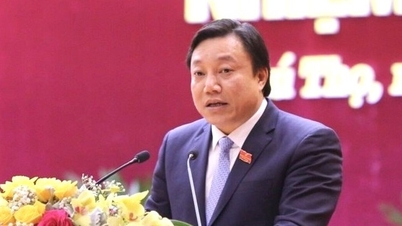

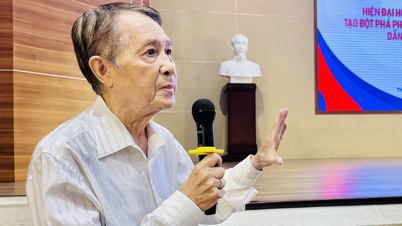

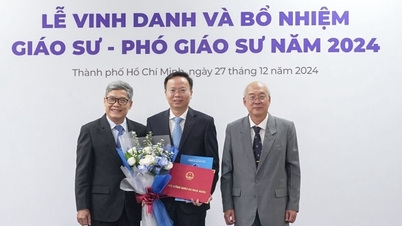
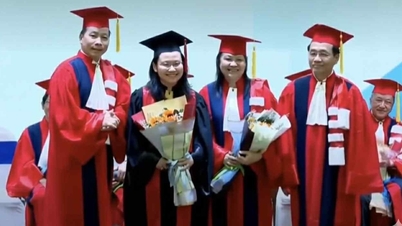





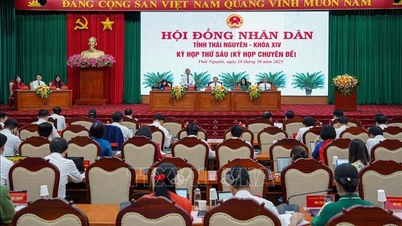
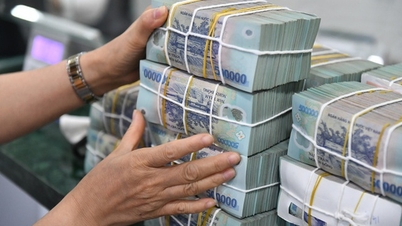

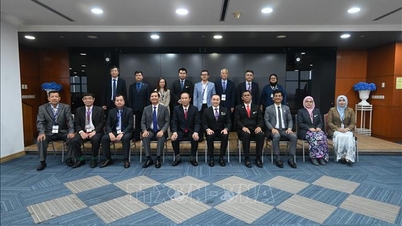
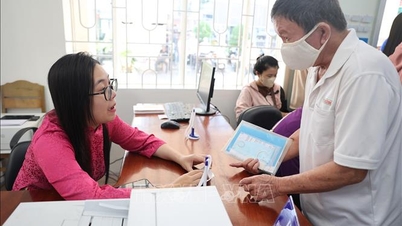




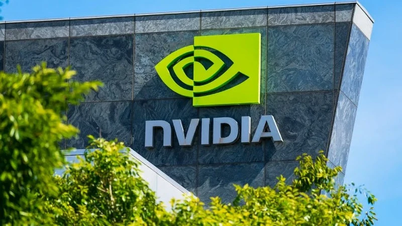

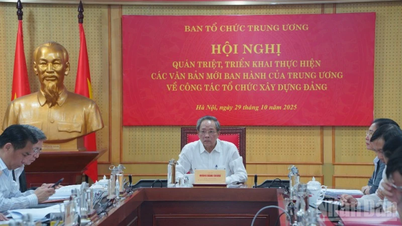
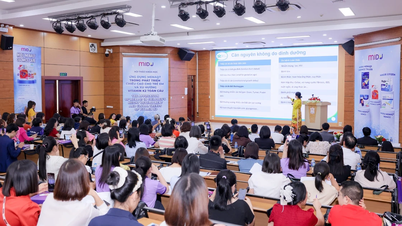
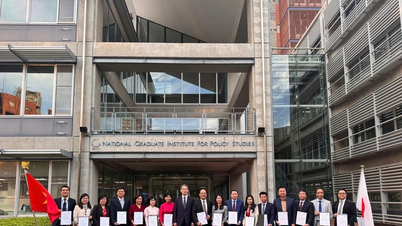
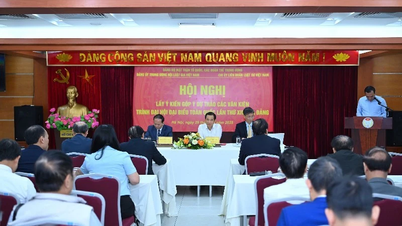

































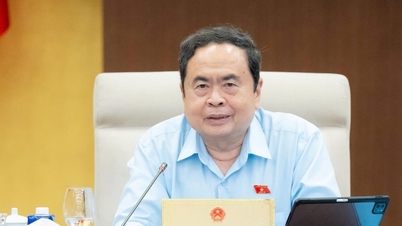

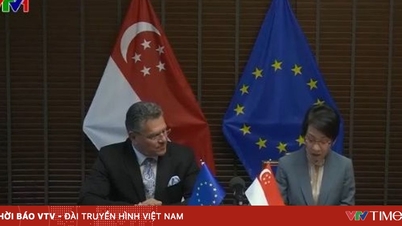
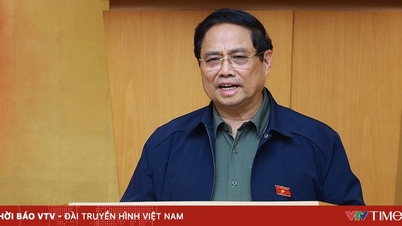
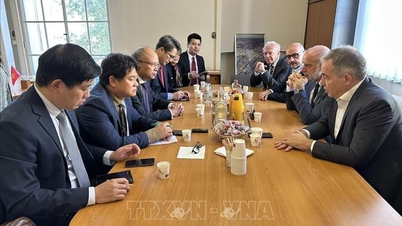
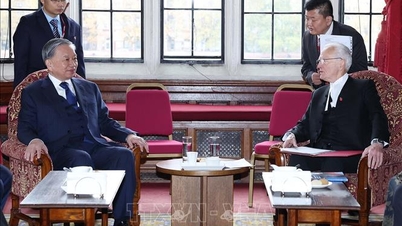
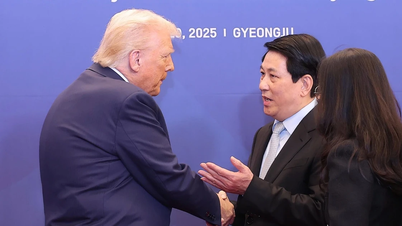


![[Live] Concert Ha Long 2025: "Heritage Spirit - Brightening the Future"](https://vphoto.vietnam.vn/thumb/402x226/vietnam/resource/IMAGE/2025/10/29/1761743605124_g-anh-sang-am-thanh-hoanh-trang-cua-chuong-trinh-mang-den-trai-nghiem-dang-nho-cho-du-khach-22450328-17617424836781829598445-93-0-733-1024-crop-1761742492749383512980.jpeg)



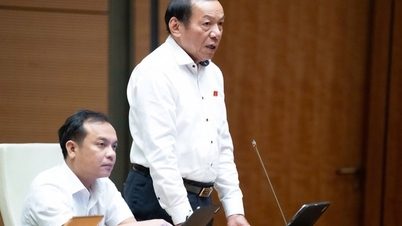



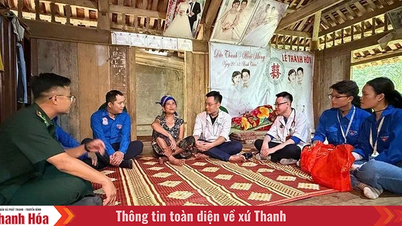






















Comment (0)